Hosted by the International Strategic Technology Alliance, co-organized by the Southern University of Science and Technology and The Hong Kong Polytechnic University, the 10th webinar of ISTA Knowledge Transfer Webinar was successfully held on 4 Nov 2022.
The theme of this webinar was A Quick Glance of Knowledge Transfer in East Asia. We invited Dr Alwin Wong, Member of the Board of Alliance of Technology Transfer Professionals (ATTP) and Chair of the Asia Sub-Committee of the Internal Strategy Committee of AUTM; Dr Christophe Haunold, The President of the Association of European Science and Technology Transfer Professionals (ASTP); Ms Eri Hoshi, Co-founder of KOSEI (Knowledge Transfer of Sports, Entrepreneurship, and Innovation) LLC; and Prof. John Shim, Vice Chairman of Korea Association of Technology Transfer Management (KAUTM), Vice President and Professor of Technology Commercialization Division of Seoul National University of Science and Technology, to share their views on the topics.
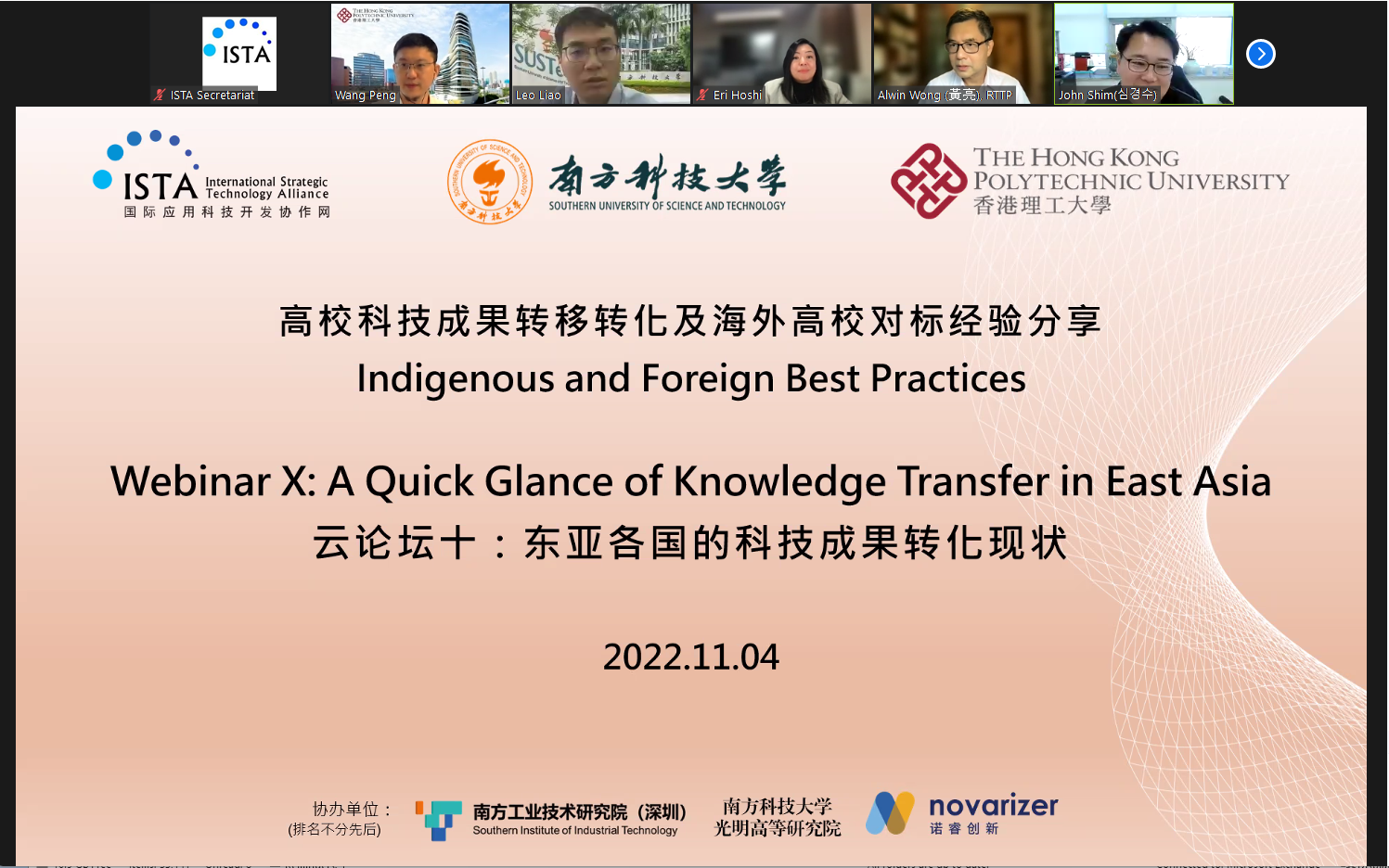
Topic 1 : The Basics of the Triple Helix Model and the Impact Factors of Knowledge Transfer
Dr Alwin Wong said that this webinar aims to exchange and share the policies and development history of technology transfer in East Asian countries, aiming to promote the sharing of technology transfer experience among countries and promote the development of international technology transfer.
In this session, he took China as an example to discuss how the triple helix influencer: government, industry and academia vary from country to country, and also expounded the causal relationship between technology transfer policies and status quo, and cultural policies and business models of various countries.
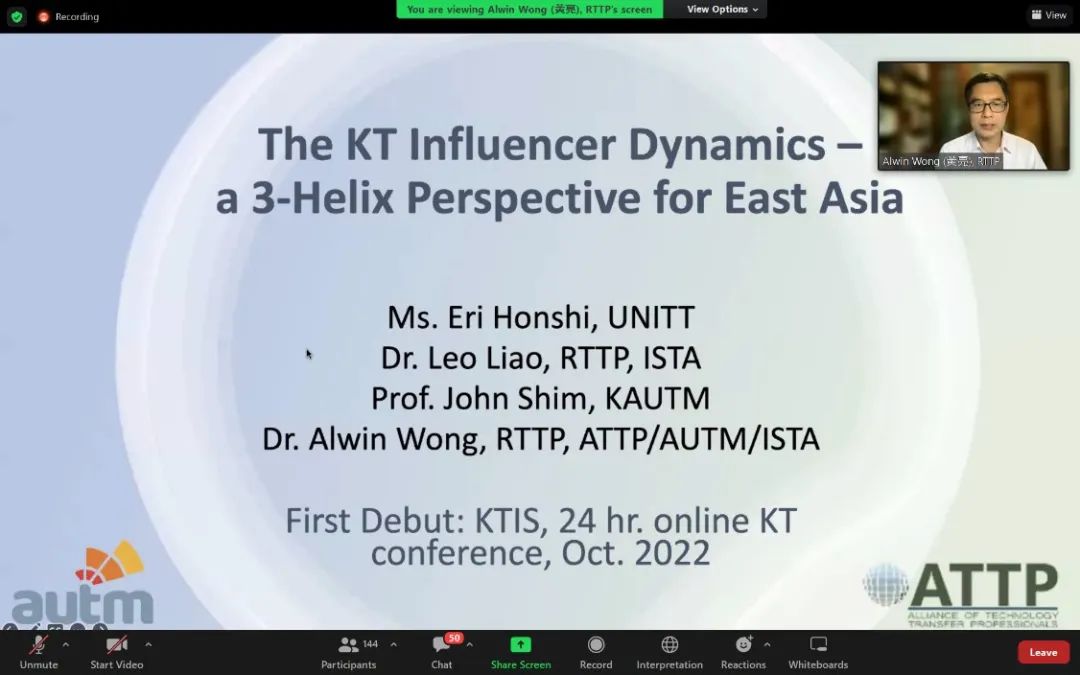
Topic 2 : The Shaping of European KT Landscape by TT Professionals
Dr Christophe Haundold stated that although European countries have different experiences and practices on technology transfer, they all have mature policies and open ecosystems to guide and support technology transfer implementation.
He pointed out that the differences in innovation and entrepreneurship between Europe and Asia stem from differences in culture, market size, organization, and political factors between the two regions. He hopes that in the future, countries can strengthen the exchange of experience and jointly promote the global technology transfer work to move forward on the right track.
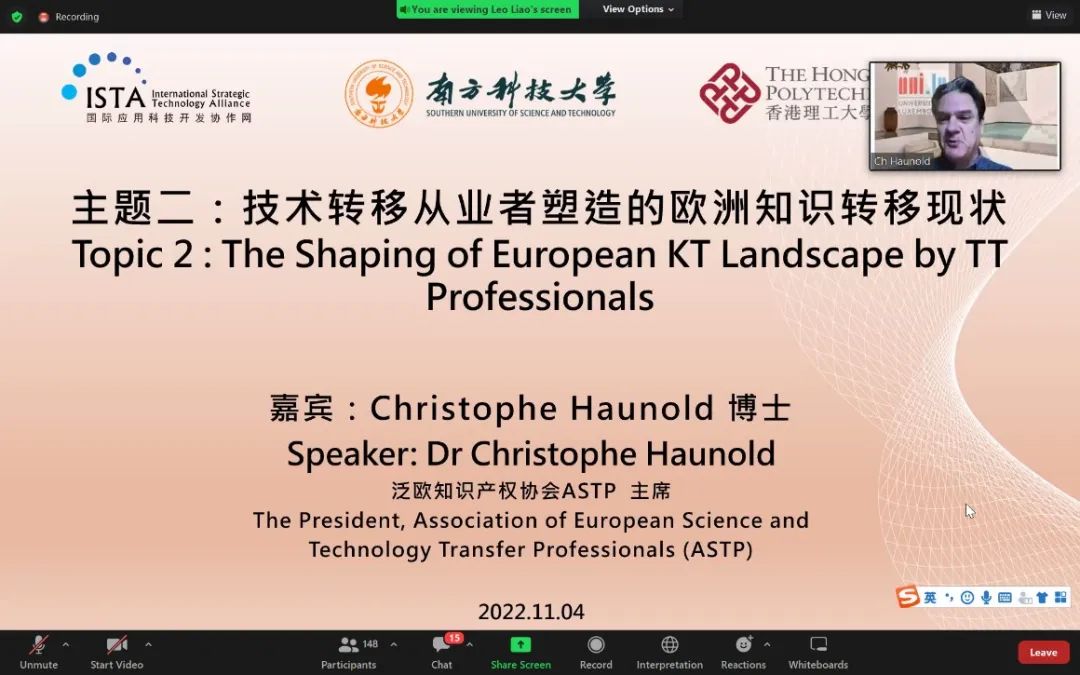
Topic 3: Knowledge Transfer in Japan
Ms Eri Hoshi shared the development history of technology transfer in Japan and the role of the Japanese government in the process of technology transfer.
The current new trend is 1) multiple funding to support university-based startups to promote more startups. 2) the establishment of Consortium Collaboration Platform with University and Corporations include creating innovation ecosystem based on the industry sector; making partnerships with many corporations and universities to create new market for academic research; creating a culture of the collaboration platform.
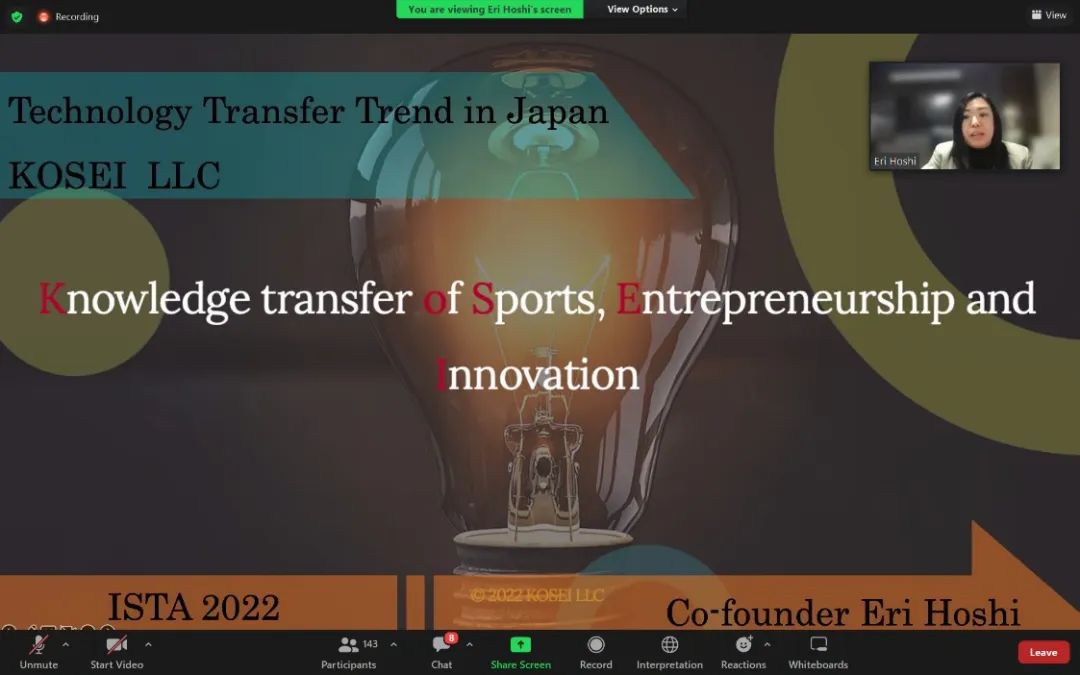
Topic 4: Knowledge Transfer in Korea
Prof. John Shim introduced the development history of technology transfer in Korea, and reviewed the Korean government's increasing emphasis on universities' R&D investment, but also produced a series of problems such as a large number of intellectual property rights but low quality, and low technology transfer rate.
He took automotive semiconductors as an example, and expounded the logic of the triple helix co-creation model of various stakeholders (universities, companies and local government agencies) to promote technology sharing and commercial development.
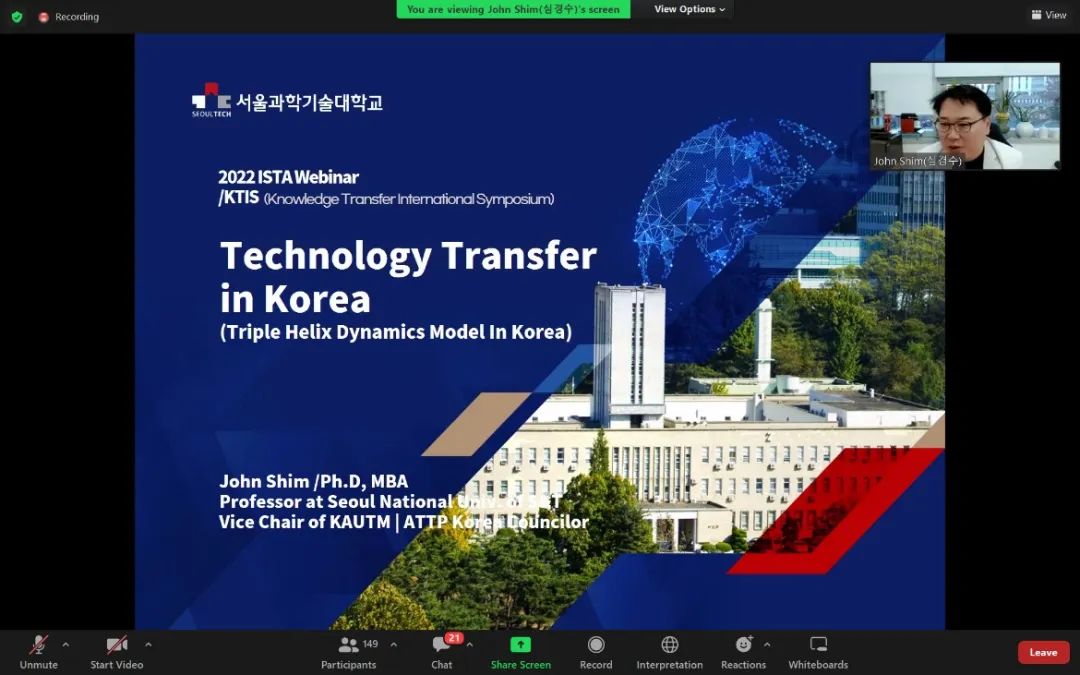
Subsequently, Dr Liao Xiao, Assistant Director of the Technology Transfer Center of SUSTech, and the four experts further shared their thoughts on technology transfer in various countries at roundtable discussion session.
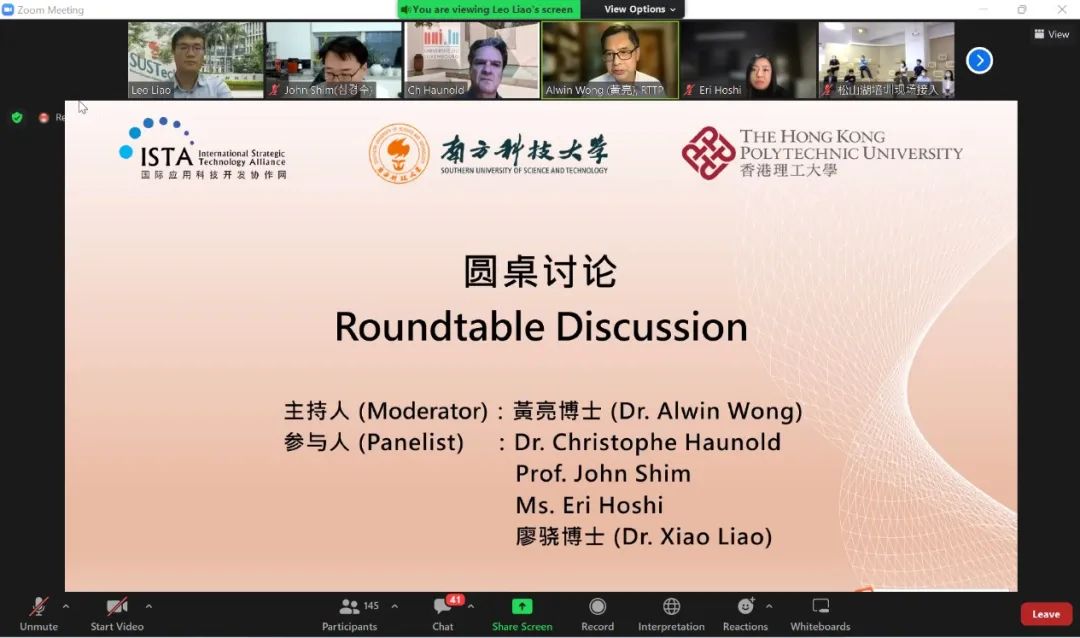
The webinar attracted more than 200 professors, scientific researchers and technology transfer practitioners from universities and scientific and technological institutions.